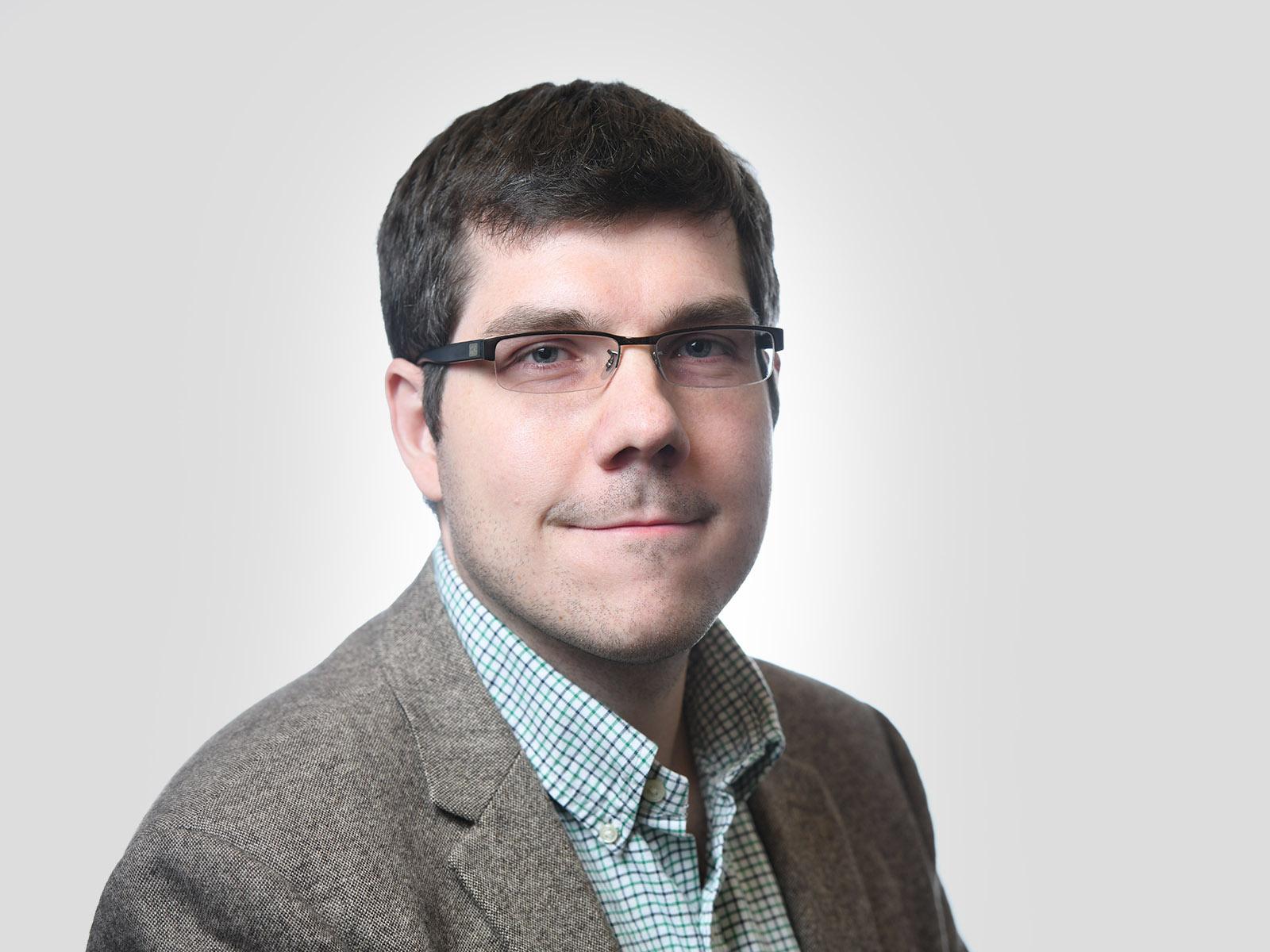Spurgeon Appointed Editor for Microscopy and Microanalysis Journal
Spurgeon will bring unique expertise in machine learning

Spurgeon is currently finding novel ways of using artificial intelligence and machine learning to automate the study of defects in materials.
(Photo by Andrea Starr | Pacific Northwest National Laboratory)
Steven Spurgeon, a materials scientist and microscopy researcher at Pacific Northwest National Laboratory, has been invited to join the editorial team at Microscopy and Microanalysis.
The journal, published by the Microscopy Society of America, includes research on microscopy, imaging, and compositional analysis in the fields of biology and materials science. In this role, Spurgeon will review manuscripts and identify topics for special issues.
This is Spurgeon’s first editorial appointment and one that carries a lot of meaning.
“The Microscopy Society of America does a lot for the community. When I was young, they would do socials for students and connect them to mentors,” said Spurgeon, “this is a chance for me to give back.”
Blazing a new frontier with machine learning
This editorial position will allow him to advance the use of data science, machine learning, and artificial intelligence, which Spurgeon said is a particularly new frontier in electron microscopy.
“I’ll be particularly focused on data science and machine learning and how they apply to the whole field of microscopy, in addition to contributing my expertise in analytical and correlative electron microscopy, looking at the chemistry and composition of materials,” said Spurgeon.
Spurgeon’s research focuses on data-driven studies of nanoscale materials for energy, next-generation electronics, and quantum computing. He is an expert in the characterization of functional materials using scanning transmission electron microscopy, electron energy loss spectroscopy, and image simulations.
“This is an exciting opportunity to help the journal build up that expertise and shape the future of the field in a way that is forward-thinking and embraces emerging technologies,” said Spurgeon. “This is a wide-open field in a lot of ways; there’s a lot of potential in artificial intelligence to make microscopy, material science, and chemistry more scalable, more informative, and more reproducible.”
Spurgeon is currently finding novel ways of using artificial intelligence and machine learning to automate the study of defects in materials. His expertise is being used by Pacific Northwest National Laboratory’s Energy Storage Materials Initiative to pioneer the digital twin approach to accelerate the design of complex materials systems, starting with grid energy storage batteries.
Spurgeon also recently accepted an affiliate associate professorship at the University of Washington Department of Physics and he serves as thrust lead for the Laboratory’s Chemical Dynamics Initiative (CDI).
Published: February 22, 2022